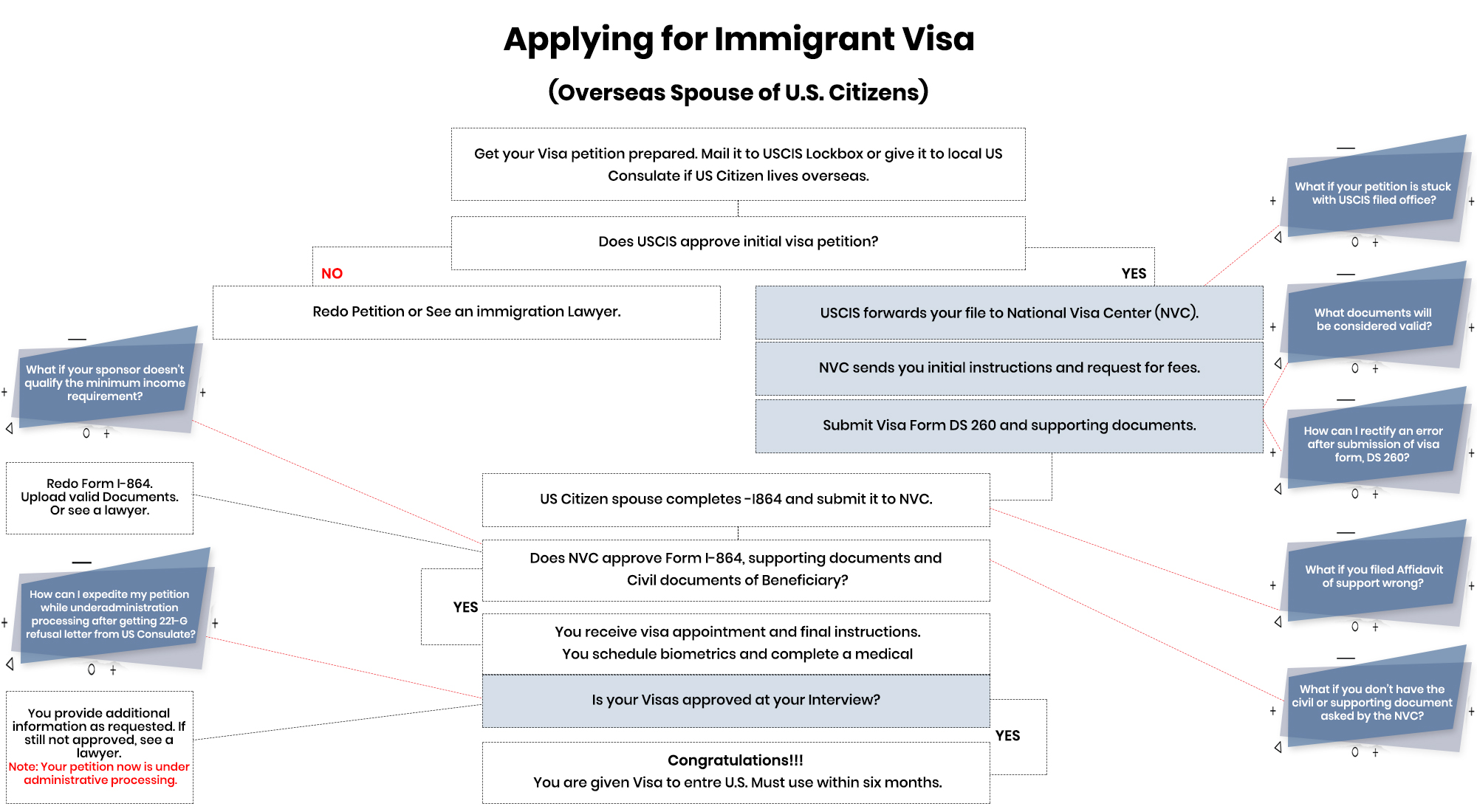FAQ Visa Refusal
Home |Services|FAQ Visa Refusal
FREQUENTLY ASKED KNOWLEDGE BASED QUESTIONS
The U.S is an open society. Unlike many other countries, the U.S does not impose internal controls on most visitors, such as registration with local authorities. However, the U.S Immigration law requires consulate officers to treat each visa applicant as an intended immigrant until further notice. Therefore, to enjoy the privilege of unrestricted travel in the United States, you must prove that you will return abroad before issuing a visitor or student visa.
What is Section 214 (b)?
Section 214 (b) is part of the Immigration and Nationality Act (INA). It says:
Every foreigner will be considered an immigrant unless, when applying for admission, the consulate officer is satisfied that they are entitled to nonimmigrant status. Our consular officers have a difficult task. They must decide whether they are eligible for a temporary visa in a short time. In most cases, the decision is made after a brief interview and reviewing the evidence enclosed with the application. To qualify for a visitor or student visa, the applicant must meet the requirements of Section 101 (a) (15) (b) or (f) of the INA. Failure to do so will result in no-issuance of visa under 214 (b). The biggest reason for such a refusal is the need for the prospective visitor or student to have no intention of staying abroad. Applicants prove the existence of such accommodation by showing that they have ties abroad which will force them to leave the U.S at the end of the temporary stay. The law places this burden of proof on the applicant.
How can the applicant prove a "strong relationship"?
Strong relationships vary from country to country, city to city, and individual to individual. Some examples of relationships can be a job, home, family, or bank account. Relationships are different aspects of your life that connect you to your country of residence: your property, employment, social, and family relationships.
Imagine your relationship in the country where you live. Will the consular office of another country consider that you have a residence there that you do not intend to leave? If you have a job, a family, a house or an apartment, or other commitments, the answer will be "yes" to returning to your country at the end of your trip abroad. It will be required. Everyone's situation is different.
The United States consular officials are aware of this diversity. They look at each application individually during the visa interview and consider professional, social, cultural, and other factors. In the case of younger applicants who may not have had the opportunity to make many connections, Counselor Officers may look into applicants' specific intentions, family circumstances, and long-distance plans and prospects within their country of residence. Each case is investigated individually and is under consideration under the law.
Is denial permanent under section 214 (b)?
No. If an applicant can show more conclusive evidence of a relationship outside the United States, the Consulate Officer will reconsider a case. Unfortunately, some applicants will not qualify for a nonimmigrant visa, no matter how many times they reapply, unless their personal, professional, and financial circumstances change significantly.
Under Section 214 (b), the denying applicant should carefully review their situation and make a factual assessment of their relationship. They can write on paper what qualifications they have in a relationship that may not have been assessed during their interview with the consular officer. Also, if they have been denied, they should review what documents were submitted to the Consulate for consideration. Applicants denied a visa under section 214 (b) may reapply for a visa. When they do, they will need to show more evidence of their relationship or their circumstances from the time of the actual application. It may be helpful to answer the following questions before reapplying:
- Did I accurately describe my situation?
- Did the consular officer ignore anything?
- Is there any additional information I can offer to establish my residence and strong ties abroad?
Applicants should also keep in mind that whether the visa is issued or not, they will be charged a non-refundable application fee each time the visa is issued and reapplied.
Who can influence a consular officer to reverse a decision?
The U.S. Immigration law delegates the responsibility to issue or deny visas to embassy officials abroad. They have the final say on all visa matters. The Department of State has the power to review embassy decisions, but the authority is limited to interpreting the law, contrary to factual judgments. The question in such denials is whether the applicant has the required residency abroad, a question of facts. Therefore, it only falls under the jurisdiction of the Consulate Officers at our Foreign Service embassies/consulates to be resolved. An applicant can influence the embassy/consulate to change the visa denial only by presenting new concrete evidence of strong ties.

